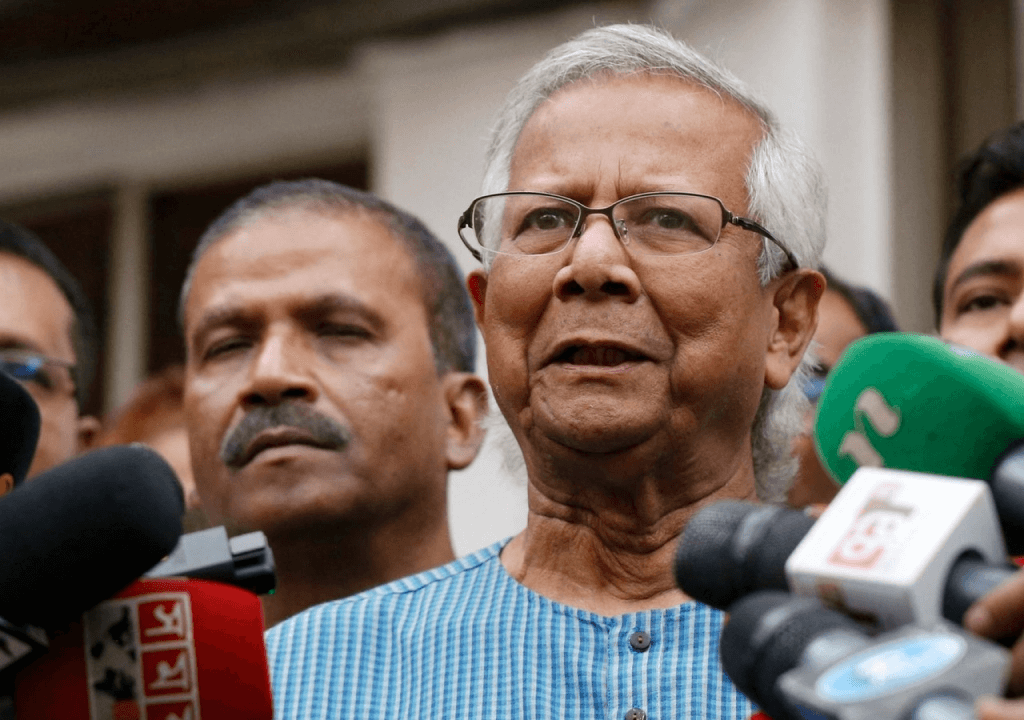Bangladesh was spared from further anarchy by the formation of an interim government under the leadership of Nobel laureate Muhammad Yunus. This is not the first time the country, with its relatively short history, has experienced mass protests, government cancellations, and temporary administrations. However, the current interim government, which includes a chief adviser, 19 advisers, and two special assistants to the chief adviser, faces the critical task of conducting a snap election while the country remains volatile.
The task assigned to Yunus is far from straightforward. Organizing an election in an overpopulated and economically strained country involves numerous challenges. The political landscape is turbulent, with a substantial number of Awami League supporters still present. Sheikh Hasina’s party, which upholds the legacy of Sheikh Mujibur Rahman, the founder of Bangladesh, remains influential and is likely to regain support due to its strong foundation. Meanwhile, the Bangladesh Nationalist Party (BNP) is reasserting its presence, and the release of Islamist leaders has bolstered Jamaat-e-Islami – a party dedicated to Islamizing Bangladesh. Jamaat-e-Islami has emerged as a key player in the protests, with its student wing being particularly active, and is anticipated to benefit significantly from the unrest that led to Hasina’s removal.
Additionally, it is unclear whether India, Bangladesh’s largest supporter and contributor, will cooperate, especially given the strained relations following attacks on the Hindu population in Bangladesh. The prospect of an election is further complicated by ongoing flood conditions, which continue to afflict the population.
Chief Advisor Yunus office has stated that a free and fair election will be held once reforms are implemented in the election commission, judiciary, civil administration, and security forces. In a televised address on August 25, Yunus announced that the interim government has begun taking corrective measures to restore public trust in state institutions. However, reforming Bangladesh’s institutions is a massive task for the interim government, which must first address the deep entrenchment of Awami League influence after over 15 years of uninterrupted rule. And the interim government has yet to present a clear outline of its proposed reforms, according to the chief advisor’s office.
Certainly, there is pressure on the interim government, but it’s still too early to assess the specific reforms it will pursue. Since its members are unaffiliated with any political party or group, internal conflicts are likely. If it fails to establish itself, especially through concrete reform initiatives, it could soon face a crisis of legitimacy. Although its primary mandate is to hold elections, if the interim government views itself as a revolutionary force, delaying the polls might not be a major concern.
This interim government differs significantly from previous caretaker governments. In the past, actions taken by interim administrations were often reversed by the subsequent democratically elected government. However, this interim government has come to power as a result of a revolution. Despite not being elected and therefore unable to directly reflect public demand, it has already introduced considerable chaos. To successfully implement reforms, gaining the consensus of all political parties is essential, and the interim government may need to be given reasonable time to hold the election.
Rushing toward polls could empower existing, entrenched political actors who have little motivation to pursue structural reforms. In discussions about forming the interim government after Hasina’s departure, Bangladesh’s army chief, General Waker-Uz-Zaman, met with the BNP, Jatiya Party, and the Islamist Jamaat-e-Islami, but the Bangladesh Awami League was notably absent from the meeting.
So, There are valid reasons for the government to delay the election, such as cooling political tensions, stabilizing political institutions, addressing the political party dynamics, and improving relations with India. However, some believe that delaying the election is part of Yunus and his sponsors’ agenda. The interim government has expressed plans to rewrite the constitution and pursue other reforms, which may lead to further agenda-pushing by interested parties and potentially another wave of mass protests.








